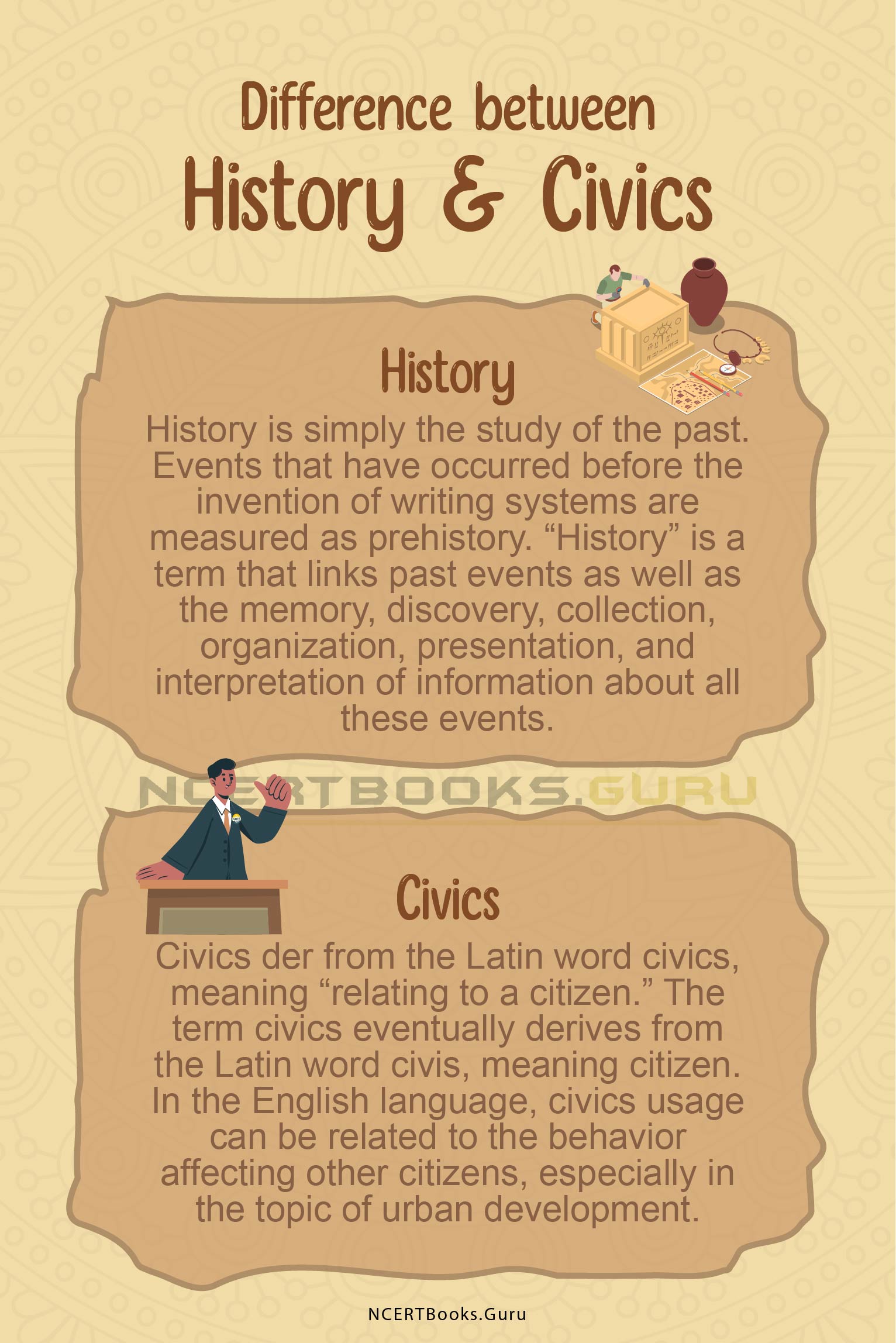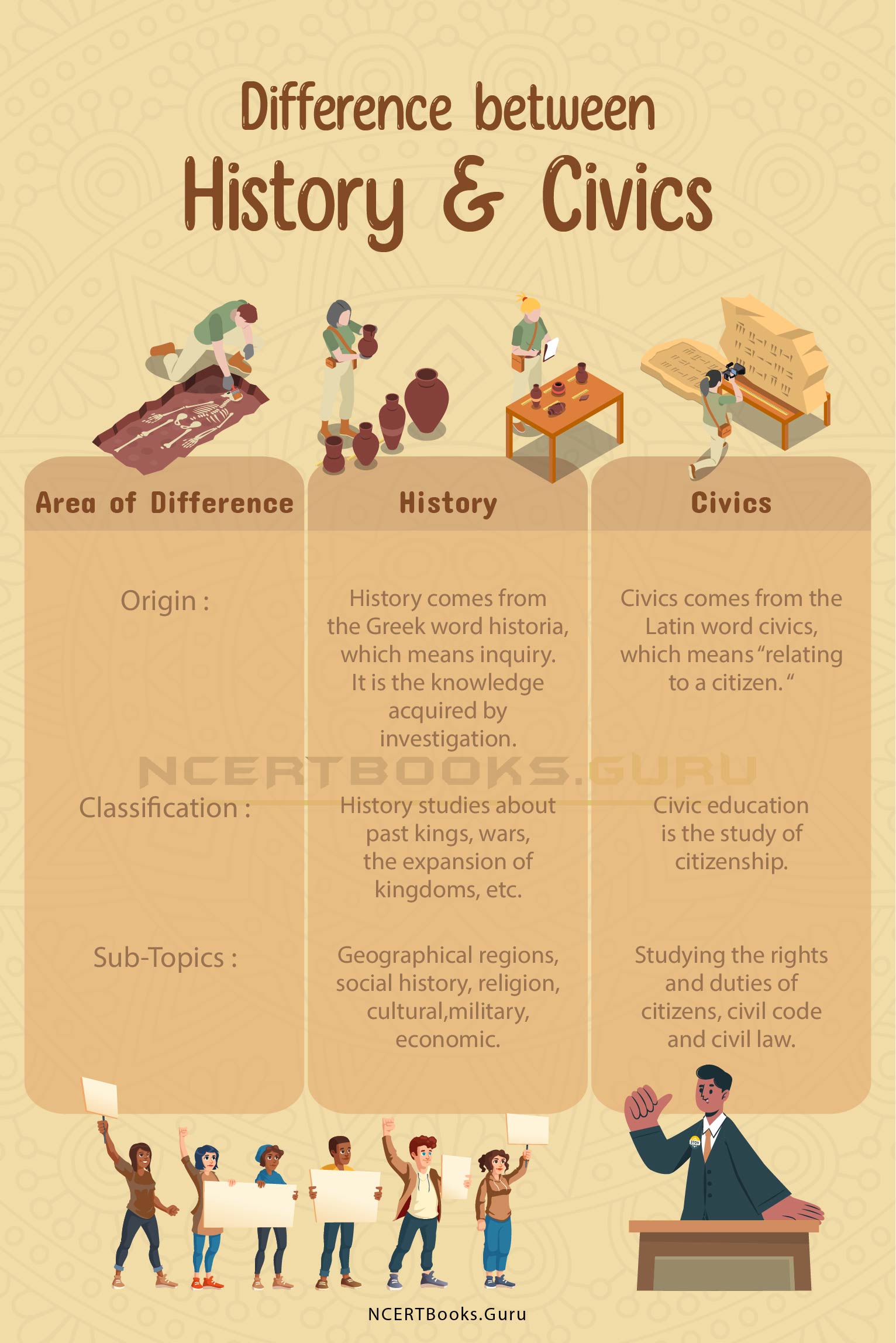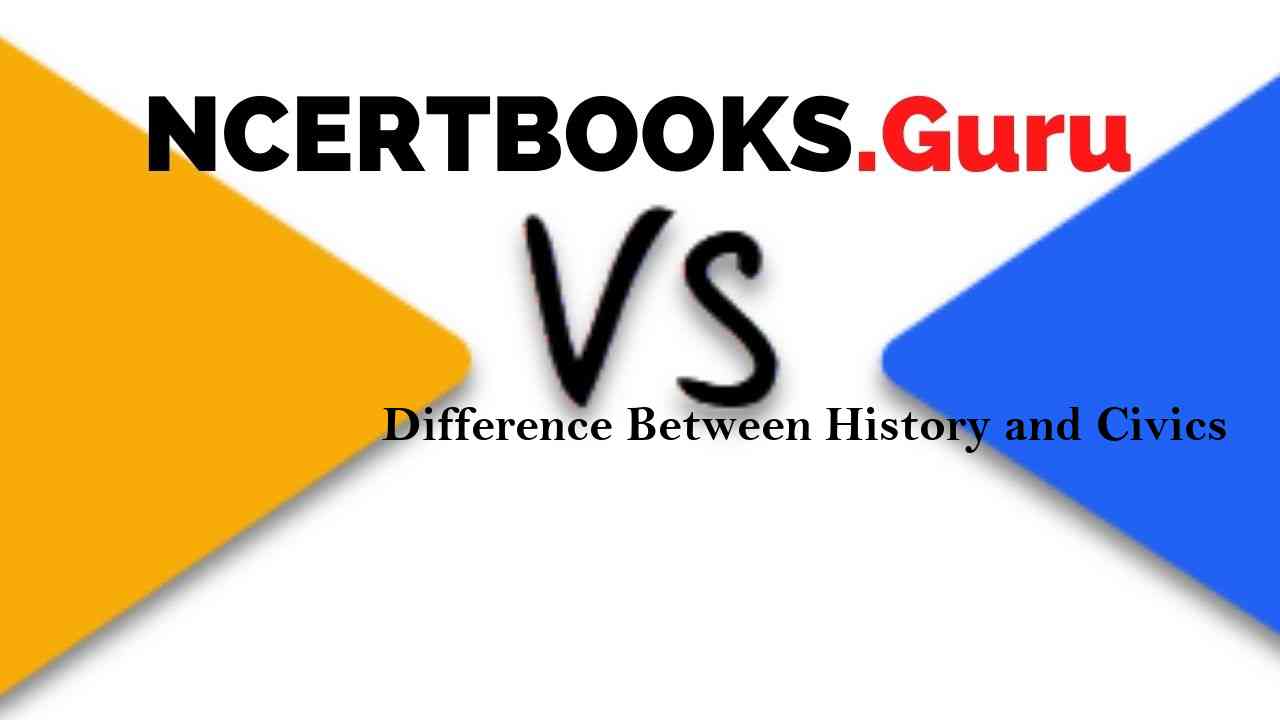Introduction
The difference between History and Civics is explained here in detail. Civic education is coined as the study of the theoretical, political, and practical aspects of citizenship.
On the other hand, history is a term that is related to past events, discovery, collection, organization, civilizations, and interpretation of information about all these events. This article will help us to understand the basics better and know their comparisons thoroughly.
You can also find differences between articles on various topics that you need to know. Just tap on the quick link available and get to know the basic differences between them.
What is the Difference Between History and Civics?
About History
History is simply the study of the past. Events that have occurred before the invention of writing systems are measured as prehistory. “History” is a term that links past events as well as the memory, discovery, collection, organization, presentation, and interpretation of information about all these events.
Historians write about the past by using several historical sources. For example, written documents, oral accounts, ecological marks, architectural ruins, and material objects such as art and artifacts.
About Civics
Civics der from the Latin word civics, meaning “relating to a citizen.” The term civics eventually derives from the Latin word civis, meaning citizen. In the English language, civics usage can be related to the behavior affecting other citizens, especially in the topic of urban development.
Civic education is primarily the study of the theoretical, political, and practical aspects of citizenship and rights and duties. Civics includes the study of civil law and civil code and the study of government.

Difference Between History and Civics
| Area of Difference | History | Civics |
| Origin | History comes from the Greek word historia, which means inquiry. It is the knowledge acquired by investigation. | Civics comes from the Latin word civics, which means “relating to a citizen. “ |
| Classification | History deals with the study of past events, analyzing the memories documented by historians. The study of history began once writing was invented, and all the important events began to be documented. People who study history are called historians. History studies about past kings, wars, the expansion of kingdoms, etc. The classification of history as per period is modern history, medieval history, and ancient history. | Civic education is the study of citizenship. It includes the practical, political, and theoretical aspects of citizenship. |
| Sub-Topics | There are several classifications in the study of history, it is history based on geographical regions, social history, history of religion, military history, cultural history, economic history, economic history. | Civics also involves studying the rights and duties of citizens; it includes the study of civil code and civil law. |

Similarities of History and Civics
- History and civics are like two sides of the same coin: both study humankind and its actions taken in the past or present.
- Both subjects discuss the philosophical and practical implications of political decisions and cultural movements.
- Though both these subjects are vastly different, most parts of it are linked to the study of the past.
FAQs on Difference Between History and Civics
Question
What does history study?
Answer
History gives us a deep understanding of the cultural and historical context of political decisions, social movements, and cultural shifts over time.
Question
What does civics mean?
Answer
Civics degree focuses primarily on the practical, political, and theoretical aspects of citizenship.
Question:
Does civics study the past?
Answer
It has parts that study the past, but it’s restricted to the past of citizens and governments’ rights and duties and is seen through a political lens.
